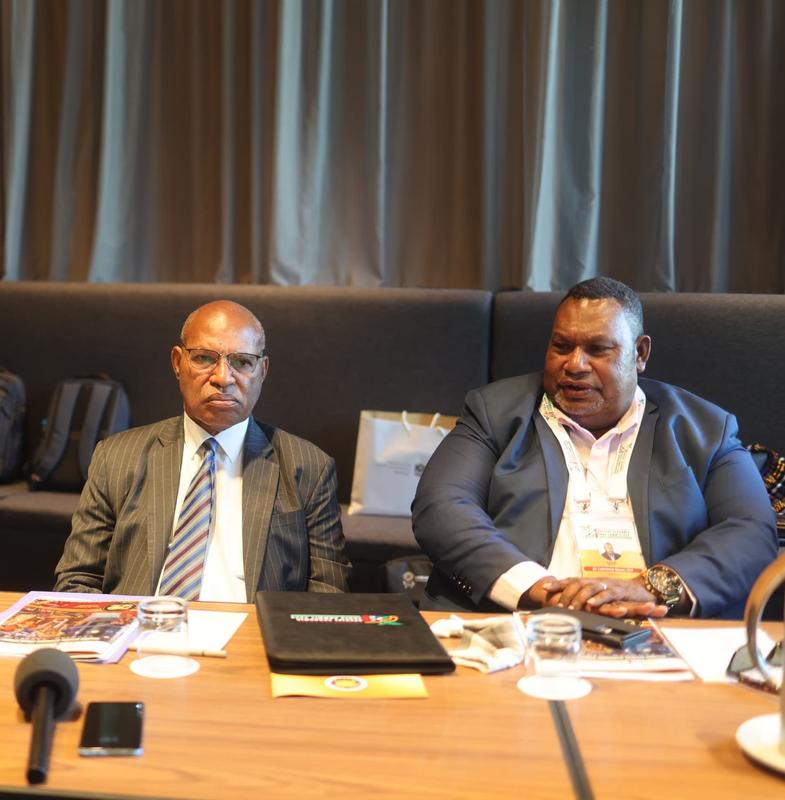Papua New Guinea has concluded its Second Special Economic Zone (SEZ) Summit, hailed as the country’s largest international investment gathering to date, drawing over 450 delegates, including more than 100 foreign investors from Asia and the Middle East. The three-day summit, held from 1–3 September at APEC Haus in Port Moresby, has been described by organisers and officials as a turning point in positioning PNG as a competitive global investment hub.
Rebranding PNG’s Investment Image
The SEZ Summit provided a platform to rebrand PNG’s investment image. Speaking ahead of the event, Dr Lawrence Sause, Managing Director of the Special Economic Zone Authority, said the summit was designed to counter negative perceptions about PNG and demonstrate the country’s ability to attract credible global capital.
“For a long time, PNG’s reputation, due to bad press, has been that this is a place where investment will not take off. But PNG is still a great place for investment, despite all the doom and gloom,” Dr Sause emphasised.
He revealed that four SEZ projects have already been licensed, valued at K7.4 billion, including Parker Hill, the Pacific Lime and Cement Project, Sea Park, and the Central Industrial Park. These projects, he said, represent investor confidence in PNG’s future.
Record Foreign Investor Participation
Minister for International Trade and Investment Hon. Richard Maru, host of the summit, confirmed that investor participation far exceeded expectations.
“For the first time, we are getting 30 investors from China, 11 from the United Arab Emirates, and 13 from India. We also have participants from Malaysia, Indonesia, Japan, Thailand, and other countries. This is an investment seminar like no other,” Maru said.
The summit featured 50 business booths for networking and matchmaking between foreign investors and local businesses, with the government targeting USD 20 billion (approximately K70 billion) in new investments across agriculture, fisheries, forestry, mining, manufacturing, energy, transport, hospitality, and retail.
One example Maru highlighted was a planned retail complex in Port Moresby that would be “three times the size of Vision City,” underscoring the scale of projects under discussion.
UAE Signals Deeper Engagement
A notable highlight was the presence of a high-level delegation from the United Arab Emirates (UAE), which announced its intention to strengthen ties with PNG. The UAE has proposed three major agreements before the end of the year:
-
An Investment Promotion and Protection Agreement
-
An Air Service Agreement
-
A Comprehensive Economic Partnership Agreement
Maru also confirmed that PNG is preparing to establish a diplomatic mission in Abu Dhabi by the end of 2025, with the UAE seeking to become PNG’s first major new bilateral partner following its 50th Independence Anniversary.

Private Sector-Led Success
Remarkably, the summit was hosted without direct government financing, relying instead on K5.5 million in sponsorships from 25 private and state-linked entities, with only four government agencies contributing. Both Dr Sause and Minister Maru praised the private sector’s role, describing the event as a milestone for public-private collaboration.
“This summit is about building partnerships and attracting capital. Without investment, PNG cannot create jobs, build industries, or sustain its growing population,” Maru said.
PNG is offering competitive incentives, including 10-year tax holidays and duty-free importation of materials, modelled on successful SEZ frameworks in countries such as the Philippines, which operates 420 zones generating USD 68 billion annually.
Minister Maru said he is convinced SEZs will eventually outpace the mining and petroleum sectors in job creation and export earnings. “The potential of SEZs is unlimited. We have the raw resources. Our future as a country is going to be anchored on SEZs,” he declared.
Closing Reflections: From Talk to Action
In his closing speech, Minister Maru reflected on PNG’s economic journey since independence and the urgency of reform.
“Our economy is now valued at US$32 billion, while nations like Singapore and the UAE—once behind us—are now at US$500 billion. We must change the way we do business if we are to provide for our people and future generations,” he said.
He acknowledged delays in government processes, citing stalled agreements with the UAE, and challenged public servants to move with urgency to secure investor confidence.
Maru reaffirmed that the first four licensed SEZs will deliver K8 billion in investments and over 10,000 new jobs. Seven more applications, valued at an additional K20 billion, are already under Cabinet review.
“This is a game-changer for our country. SEZs will grow more jobs than the mining and petroleum sector. Our challenge is to move beyond talk and take decisive action,” Maru urged.
As PNG enters its 50th year of independence, the SEZ Summit has set an ambitious tone: to drive industrialisation, job creation, and economic diversification through a competitive SEZ framework. With investor enthusiasm high and private sector support evident, the government now faces the challenge of turning commitments into tangible projects.
“The talk fest must end today, and the actions must start tomorrow,” Maru concluded. “Together, we will build the new PNG economy.”










